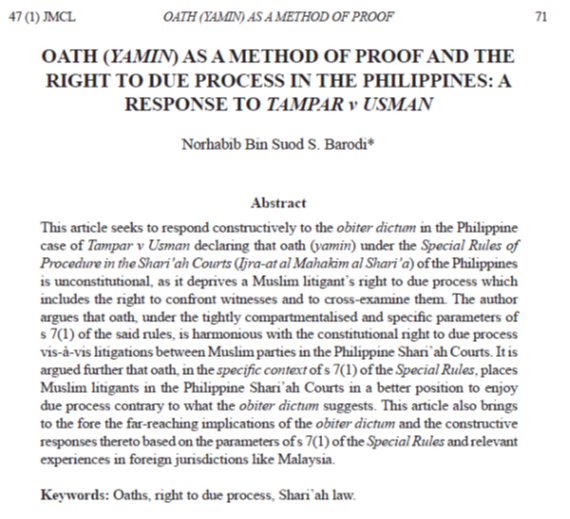Oath (Yamin) as a Method of Proof and the Right to Due Process in the Philippines
A Response to Tampar v Usman
Keywords:
Oaths, right to due process, Shari’ah law, Shariah LawAbstract
This article seeks to respond constructively to the obiter dictum in the Philippine case of Tampar v Usman declaring that oath (yamin) under the Special Rules of Procedure in the Shari’ah Courts (Ijra-at al Mahakim al Shari’a) of the Philippines is unconstitutional, as it deprives a Muslim litigant’s right to due process which includes the right to confront witnesses and to cross-examine them. The author argues that oath, under the tightly compartmentalised and specific parameters of s 7(1) of the said rules, is harmonious with the constitutional right to due process vis-à-vis litigations between Muslim parties in the Philippine Shari’ah Courts. It is argued further that oath, in the specific context of s 7(1) of the Special Rules, places Muslim litigants in the Philippine Shari’ah Courts in a better position to enjoy due process contrary to what the obiter dictum suggests. This article also brings to the fore the far-reaching implications of the obiter dictum and the constructive responses thereto based on the parameters of s 7(1) of the Special Rules and relevant experiences in foreign jurisdictions like Malaysia.
Downloads



